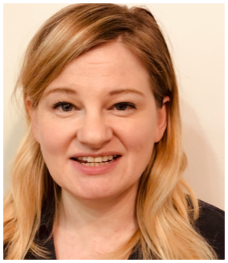English can be tricky, and even the most experienced speakers make mistakes from time to time. Some errors stand out more than others because they sound wrong to the ear or confuse the listener..jpg?width=500&height=334&name=iStock-494214738%20(1).jpg)
Let’s look at a few common mistakes to avoid in English, with examples to help you spot them and improve your language skills.
1. "What" in Relative Clauses
One mistake that’s often made by Finnish speakers is using"what" incorrectly in relative clauses. For example, you might hear someone say, "The book what I read was great." This is incorrect. The correct form should be:
Correct form: The book which/that I read was great.
“Which” or"that" is the correct relative pronoun to use here for a known object , not "what." “Which” is slighly more formal than “that”. "What" is used for unknown objects e.g. “I don’t know what he bought” or suspended objects such as “What I need is a drink”.
2. Plural Instead of Singular
Another error that can be jarring is using the plural form when the singular is needed. For example, you might hear someone say, "Let’s move these furnitures and equipments." These nouns are uncountable and so the correct sentence is:
Correct form: Let’s move this furniture and equipment.
Common words which are uncountable and always singular that can catch out Finns are advice, information, machinery, training, advertising, and marketing. If we wish to enumerate several of these we use a counter such as “item” or “piece” or “session”.
Correct form: Two pieces of advice/ four items of information/ five sessions of training.
Note also that herd animals are also uncountable and singular in English so we would say:
Correct form: 200 sheep/ 20 antelope/ 12 deer
3. Double Negatives
Although double negatives are correct in other languages such as Finnish or French, in English it is considered that two negatives make a positive. For example, while a sentence like "I don't know nothing about it" is commonly heard, especially in certain dialects such as London Cockney or African American English, it stands out as incorrect in formal English. It should be:
Correct form: I don't know anything about it.
The best advice is to avoid double negatives unless you’re using them for emphasis in a casual or dialect-specific context.
4. Irregular Verbs
English is full of irregular verbs, and using the wrong form can make your speech sound awkward. For example, saying "They catched the criminal" is incorrect. The correct way to say it is:
Correct form: They caught the criminal.
Keep an eye on irregular verbs and their forms, as they can change the meaning of your sentences.
5. Extra Word in Comparatives
Comparative adjectives are another area where mistakes can sneak in. For instance, saying "This course is more easier than the other one" is incorrect. The proper way to say it is
Correct form: This course is easier than the other one.
“Easier” is already a comparative form of “easy,” so using "more" is unnecessary. Avoid over-complicating your comparisons by adding extra words.
By avoiding these common mistakes, you'll sound more fluent and confident when speaking and writing in English. Remember, even native speakers make these errors, but with practice, you can avoid them and communicate more effectively.
If you would like to learn more about common errors please contact Galimatias:




